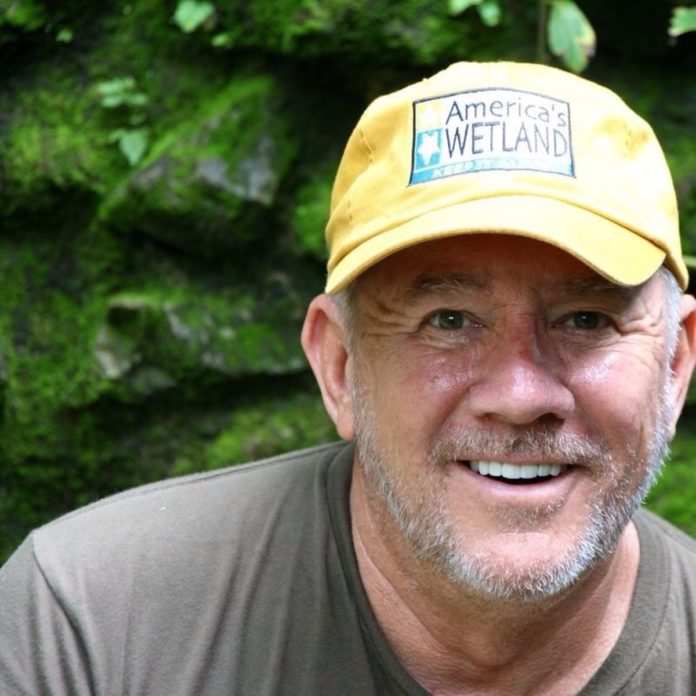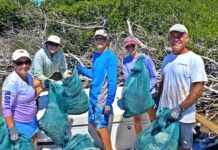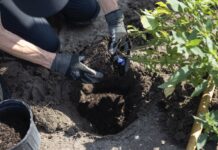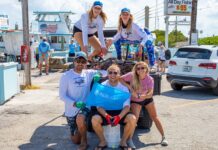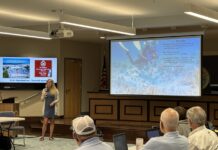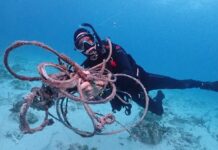There’s an ugly rumor making the rounds that sea level rise may cause our families to retreat from this special place we call home. Don’t believe everything you hear.
This is not to discount the seriousness of issues that will continue to affect all of us. Without getting into the divisive politics of why, seas are rising and we need to focus on how to address the “new normal.” Gloom and doom may fill the news, but my guess is that the Keys and Key West will rise with this tide.
Here is the simple story: With warmer waters, the sea is expanding. With greater frequency, ice is melting up north and adding volume to the tub. Slower, longer-lasting, and wider-footprint storm events (the H word) are impacting our insurability. The negative news places a target on the backs of the Keys and Florida’s expansive coast. Left unattended, the resulting challenges may overcome us.
But here is the next story to be written and we can all participate in editing our future. Adapting to the rising tide is a process of calling on innovation and ingenuity to do things differently. This means looking at our natural resources as ecosystem values that need to be enhanced and put to use as a natural offense to protect our homes, businesses and quality of life. We call it natural adaptation. In a mix with some hard engineering like road raising and flood infrastructure, we can re-nourish and grow beaches, enhance mangroves, wetlands, seagrasses and tree canopies in a process we call living with water and building with nature. Below-sea-level communities in the Netherlands have been doing this for decades with documented success.
The Keys and Key West have the unique opportunity to be a beacon on the beachhead of sea level rise. Over the coming decades, we can turn back the negative stigma associated with vulnerable communities by living differently with the sea.
Here is why we won’t be retreating any time soon: We know, through accurate projections, just how much we can expect water to rise. Flood infrastructure has been in the works for more than a decade, meaning that floodwater can be moved out of the way with retooled pipe elements and pumps. Local government has its act together, having been a leader in designing adaptation strategies and aligning government agencies with known projected sea level rises.
King tides, bubbling drains, boats floating above their docks and standing water in our streets are all symptoms provided by mother nature to encourage our change of behavior. And, as we all know, change is always OK for someone else. The irony of our times is that we now need to value our ecosystem as a way to sustain our communities.
Looking ahead, we cannot expect government to solve all of these problems. The private sector, including business, non-profits, faith communities, researchers and civic associations, all need to move into place and take on this challenge.
What’s at stake? If we rely on others to determine and describe our future, we will have to live with some severe consequences. These include our home values reaching a tipping point when confidence is lost in the market and the risk appears too great for future investment. If our home values decline, as is happening in some parts of coastal America, the local tax base is crippled and basic public services become compromised. New FEMA flood maps will result in increased insurance rates, which is happening now. There is no future in doing nothing. We are all in this together and, from all sectors of island life, we are compelled to create a bright future for everyone.
We all have a job to do to maintain the quality of our lives in these extraordinary island communities. In life and in our history, we are called on to dig deeper and find new ways to rise above adversity. This is one of those times and, as is often proven, that which challenges us leads to new ideas and better days. And beyond the prospect of helping ourselves, the decisions we make to create the new normal will have lasting impact for coastal communities across the planet. This may seem a tall order, but it’s well worth the effort to save our way of life for generations to follow.
Valsin A. Marmillion is managing director of America’s WETLAND Foundation, adjunct instructor at University of Florida, and leads an effort to help coastal communities adapt to sea level rise with the Sea Safe Community Certification program. He and his partner own The Peace Store in Key West. For more information, go to americaswetland.com.
















